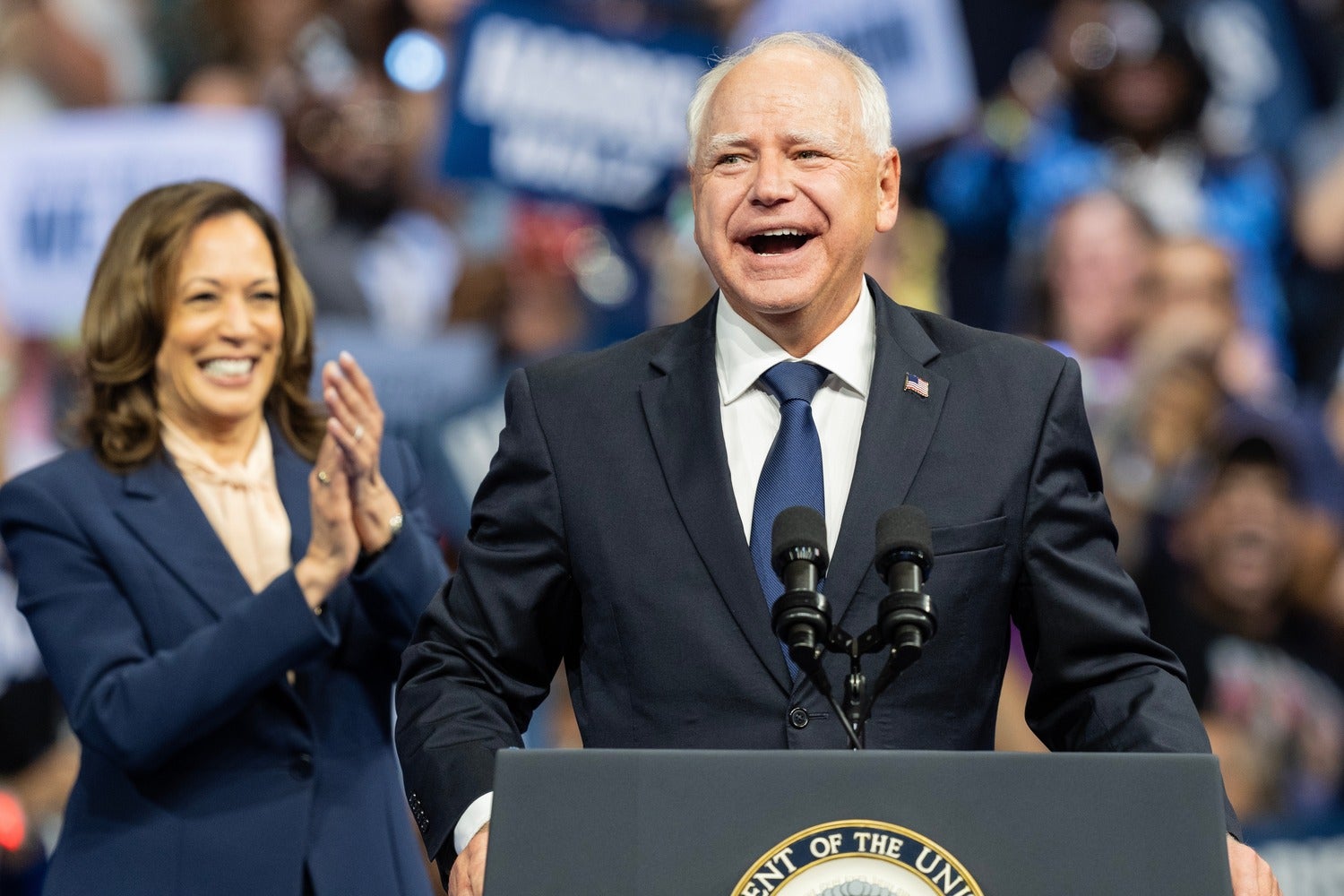Hey team, and welcome back to one5c! It’s Aug. 12, and I don’t know about y’all, but I feel like summer is basically over. Then again, I’m also not quite sure when summer really started. The pace of headlines, heat waves, and megastorms has my internal clock spun all out of whack. We’ll blink and it’ll be Labor Day weekend. Blink again and it’ll be November. Oh shoot, is it 2025?
With the days passing by so quickly, I find it can be easy for me to slip into old, bad habits—like hailing a Lyft instead of taking the subway when it’s late and hot as hell out. I try not to beat myself up when that happens (we’re human, after all), and remember that there are literally dozens of ways each of us can do a little bit better every day. Tonight, for example, dinner’s going in the air fryer… —Corinne
SPONSOR

Restore the Planet, One Mission at a Time
The responsibility to protect our planet falls on all of us. Planet Wild is a community of nature lovers pooling their contributions to fund efficient projects that save animals, oceans, and forests. And you can join them. Each month, your contribution will help fund a targeted nature revitalization mission where it’s needed most. With monthly videos, you’ll even get to see the impact you’re making.
The first 150 people to sign up via the link (coupon code automatically applied) will receive the first month for free as a special offer from us.
WHAT WE’RE INTO THIS WEEK
By Sara Kiley Watson and Corinne Iozzio

From our buds at Cool Beans
Make August the month of the Air Fryer
How many people want to turn on the oven in the dead of summer? We’d wager very (very) few. Fortunately, a smaller, cooler, and more efficient appliance has taken over American countertops. It’s the air fryer! Nearly two-thirds of U.S. homes now have one of these teeny convection ovens, and using them nets deliciously crisp vittles and racks up planet-saving bennies. Check it out: If every oven-using household in the U.S. made one meal a week in an air fryer instead of al forno, that would save about 3.5 billion kilowatt-hours of electricity every year—in terms of emissions, that’s like taking more than 345,000 gas-powered cars off the road. That’s why we’ve declared Air Fryer August over at Cool Beans. All month long, our original recipes showcase all these wonder cookers can get done. First up: the fastest (and summery-est) stuffed peppers you’ll ever make.
Greenwatch
One-third of carbon credits fail a big sniff test
It’s not exactly a headline that carbon credits, which promise to offset emitting behaviors with investments in reduction projects elsewhere, don’t always deliver the world-saving benefits they promise. The latest blow to this oft-shady market comes from the Integrity Council for the Voluntary Carbon Market (ICVCM), an independent governance body; they announced last week that eight buckets of credits in the renewable energy space don’t pass muster. The key issue is additionality, which asks whether or not the emissions reductions would have happened even without the crediting system. The methodologies in question were designed around 20 years ago—back when renewables were way more expensive and complex to finance than they are today. The ICVCM says that credits can still have a role in renewable development, but it’s time to reassess.
🎧 Listen to this
Your fridge has a climate secret
Our trusty iceboxes are a modern marvel, capable of extending the life of our vittles by days, weeks, or even months. A time machine, if you will. But as much as we adore cold storage, it’s also not a perfect scenario. That’s because the appliances rely on a class of chemicals called refrigerants, many of which are hydrofluorocarbons—super-potent greenhouse gases. Developing new refrigerants (and better management of the ones already in the wild) can have the biggest impact on addressing global heating, according to analysis from Project Drawdown. Where do we go from here? Nicola Twilley, host of Gastropod and author of the book Frostbite, traces the past, present, and future of the fridge in a fascinating new episode of Today, Explained.
Planet home
The Great Barrier Reef feels the heat
Here at one5c, we zero in on what y’all—everyday folks—can do to help address the climate emergency, but every now and again we also like to take a step back and remember the planet that we’re fighting for. There are few places in the world as unique and fascinating as the Great Barrier Reef, which is home to 10% of all fish species and covers 134,000 square miles off the coast of Australia. But as the world warms, so do our oceans, which is proving disastrous to the world’s biggest single structure of living organisms. New research in Nature found that the water surrounding the reef is hotter than it’s been in 400 years. The five mass bleaching events that have occurred over the past decade prove just how painful increased temperatures can be for this rare region.
MIC-DROP CLIMATE STAT
7/10
The portion of Americans who say extreme heat in the last year has had some impact on their electricity bills, according to a poll from The Associated Press-NORC Center for Public Affairs Research.
ACCOUNTABILITY CHECK
3 things to know about Tim Walz on climate
By Tyler Santora

Kamala Harris might have made the honor roll with her climate report card, but judging by a wave of endorsements from environmental groups, her V.P. pick, Minnesota Gov. Tim Walz, might be the valedictorian. “He brings sound judgment and a solid commitment to protecting the environment and public health in a way that advances equity,” Manish Bapna, CEO and president of the Natural Resources Defense Council Action Fund, told Reuters.
Here are three ways America’s Midwestern Dad has faced down the climate crisis in his home state.
He’s passed big climate policy…
Walz’s environmental work as Minnesota governor started early with the formation of a climate subcabinet and laying out a framework for state climate action, but a lot of the biggest progress has come in the last year or so. In February 2023, he signed legislation requiring utilities to produce 100% carbon-free electricity by 2040. So far, 54% of electricity in the state comes from carbon-free sources, compared to 41% nationally.
The real headline: In May 2023, Walz signed a package of 12 bills that function as the North Star State’s own version of the Inflation Reduction Act. These measures provide millions of dollars for everything from grid improvements and rooftop solar projects to rebates and credits for electric vehicles and heat pumps. Additionally, the package includes a huge win for public transit; it establishes a steady funding source for public transit via a sales tax in the Twin Cities and allots hundreds of millions of dollars for expanding light rail. “We can’t move too fast when it comes to addressing climate change,” Walz said at the bill signing. “This idea of waiting is a luxury we do not have.”
…and cut through red tape
Big climate policy is one thing. Working out the growing pains is another. When enacting his climate plan, Walz found that it was taking renewable energy companies too long to get through paperwork and bureaucracy.
So he made moves to change that. This past June, he enacted legislation that streamlines permitting processes for building carbon-free power stations—without curtailing environmental reviews—which chopped timelines by nine to 12 months. (For context, in the U.S., the average timeline for permitting, siting, and construction of renewable energy projects is around four years.) Walz also pushed a bill to accelerate the use of codes that stand to cut large buildings’ energy use by 80% by 2036. “He’s all about common sense, how to do things faster and better, more efficiently,” Minnesota state Rep. Larry Kraft told Semafor.
He knows how to talk to skeptics
Talking about the climate crisis can be tricky, especially when not everyone is on the same page. But Walz has earned a rep as one of the country’s most skillful climate communicators, mainly because he’s shown a deftness in talking with people who are on the fence. He does it not by going hard into the science, but by focusing on the things they care about: jobs and money. Other politicians credit Walz for putting in years of work to convince moderate leaders in Minnesota to support his climate policies.
Of course, like any elected official, Walz isn’t perfect. He approved the controversial Line 3 oil pipeline back in 2020 and celebrated a $1 billion investment in a hydrogen hub backed by petroleum giant Marathon. But another thing that comes up frequently in conversations about Walz is his willingness to listen and change his mind—just look at his history with the NRA.
